Vincent Moreau
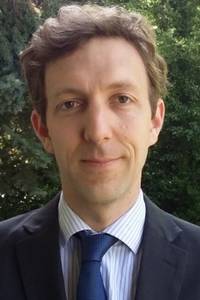
Director General, University of Bordeaux
Vincent Moreau has been Director General of the University of Bordeaux since April 2018. As such, he contributes to the development and the implementation of the University’s strategic guidelines and programmes, by ensuring overall management of the institution, particularly in terms of performance, resources, and the organization and management of university administration (nearly 2800 administrative staff members).
Vincent is a graduate of political science from SciencesPo Paris and from the National School of Administration. He started his higher education career in 2009 as Deputy Director General at the University of Paris-Dauphine, which he left two years later to join the Ministry of Higher Education and Research as project manager on the “Initiatives of Excellence” investment programme.
In 2013, Vincent Moreau became Deputy Director of the “Centres of Excellence” program for the French Government before moving in 2016 to the Île-de-France region (Paris region) as Deputy Director General in charge of Transfer, Research, Higher Education and Networking Division.
Prof. Yves Ducq
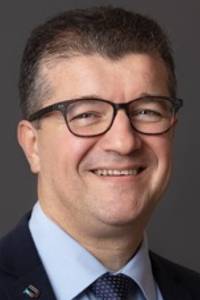
Vice President (Continuous Improvement), University of Bordeaux
Yves DUCQ is a full Professor and Vice-President of the University of Bordeaux in charge of continuous improvement. He is a Doctor of the University of Bordeaux 1 in Production Management and Enterprise Modelling. He received his PhD degree at the University Bordeaux 1 in 1999 and received his Accreditation to Supervise Research in 2007.
He works on Performance Measurement, Enterprise Modelling, Production Management and Interoperability. He has published more than 40 papers, written books and contributed to many international journals, and has written and delivered more than 100 international conferences papers.
He has been involved on several European projects for twenty years and particularly in the frame of IMS – GLOBEMAN 21 (FP4), Growth – EUROSHOE, IST – CENNET (cooperation with China) and IST – UEML of the FP5. He was strongly involved in INTEROP Network of Excellence, and is President of virtual laboratory on interoperability: INTEROP Vlab. He is also involved in many French research projects. He has also acted as research engineer on several contracts with industry on performance improvement and quality.
In the frame of his vice-presidency, he is in charge to spur projects related to continuous improvements, quality, process simplification, accreditations and open science.
Paul Woodgates
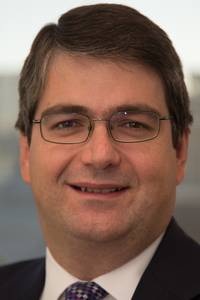
Partner, PA Consulting
Universities are facing unprecedented disruption – caused by changes to policy and funding frameworks, competition (for students, staff and/or research funding), changes to student expectations, and new technology. As a result, most are considering major change programmes to make themselves fit for the new environment. This session will explore the different approaches that universities can take to organising and managing such programmes in ways that achieve positive outcomes that are sustained and embraced by the university community.
We will consider three key questions. First, should change be driven from the top down by university leaders, or allowed to emerge from the ideas and energies of staff? Second, should change programmes be driven at pace to realise benefits quickly and move beyond the disruption that change inevitably causes, or allowed to proceed more gradually at a speed that is more manageable? And third, how can programmes be constructed in ways that engage staff at all levels in the organisation to support and drive the change? The session will discuss the options available and help participants to apply the ideas to a variety of contexts.
Paul Woodgates leads PA Consulting’s services to the education sector globally. He has more than 15 years of experience of working with universities so knows the sector, its ways of working and its culture. He works with universities to improve outcomes for teaching and research, enhance service delivery for students and staff, and reduce cost. His experience is in transformational reform of universities by designing and implementing new institutional strategies, operating models, business processes and technologies. Paul advises Vice-chancellors, Chief Operating Officers, senior management and Boards, with particular experience in the UK and the Gulf. He has also worked with sector bodies and private sector HE providers. His client list includes UCL, Royal Holloway, Cambridge, Durham, Cranfield, Canterbury Christ Church, South Wales, Nottingham, Oxford Brookes, Cardiff, UCLan, Bradford, Birmingham, Open University, TU Delft and New York University Abu Dhabi.
Camille Durr
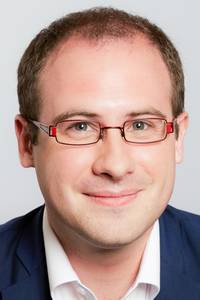
Managing Partner, CUBIK Partners
LEAN is a set of tools & techniques combined with cultural changes that aims at reducing waste and empowering people in an organization.
The aim is to constantly focus on the customer satisfaction, employee satisfaction and organizational profitability, or other non-financial measures of success.
But this is not a magic wand… It requires a real cultural change and some key success factors are:
Create a burning platform / momentum, in relation to the organization’s business context by identifying the operational issues that will mobilize your teams.
Start small, by working on ‘people irritations’ as a way of showing an ability to solve problems quickly and demonstrating a capacity to move forward (and avoid perfect performance diagnosis that lead to… no implementation!)
Ask your CEO or equivalent why they want to start such an initiative and make sure they understand what it means. LEAN is too often seen as a cost reduction approach… which it is not! Financial benefits are only the consequence, not the driver.
Think about the customer, or in the case of a university, its students and other stakeholders. Have you ever experienced your university’s core processes? What does it feel like? Put yourself in your ‘customer’s’ shoes.
But above all, LEAN is a journey that is not standard, you’ll need to create your own way… with these principles in mind!
Camille Durr has been a consultant and trainer for 15 years. He is passionate about LEAN transformation in service environments and support functions. With experience in LEAN program deployments at international level, he has developed his expertise around LEAN systems that sustain transformation over time. He is also a coach for executives, helping them understand what a LEAN culture represents in an organization.
Camille is a Managing Partner for CUBIK Partners, who are convinced that a humanistic approach can bring real operational performance (and unfortunately not the other way around!). Check Camille’s LinkedIn profile
Cynthia Espinosa
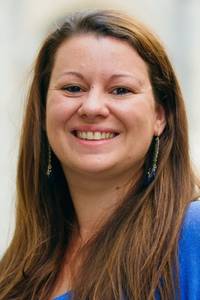
Organisational Development Team, University of Bordeaux
Over the last 10 years, the constant evolution of national legislation has profoundly disrupted French universities in their organisation but also in their management methods. Such legislative shift is in fact a mere sign of the profound and well-known changes that have affected research universities in the last decade: internationalisation, policies of scientific excellence, links with innovation, professionalisation of staff and processes, etc. French universities are thus called upon to carry out major transformation projects by virtue of internal dynamics and adaptation to their external environment.
Cynthia Espinosa is Director of the “Continuous Improvement Management”, an internal consultancy department fully dedicated to the University of Bordeaux since its creation by merger of three universities in 2014. Her service offers three types of consulting and assistance to executive and management staff: road mapping and monitoring of strategic projects, diagnosis and process engineering for the evolution of the structure organisation, coaching and training on staff management.
From 2011 to 2014, she was part of the operational team which assisted all the merger process monitoring (strategic plan, road mapping, diagnosis, group works, organisation design, staff mobility…).
Previously, she worked as a quality engineer and consultant for universities, public laboratories, technological platforms and cosmetic industry, helping them for instance with ISO 9001 compliance or law implementation projects.
Having now nearly 12 years’ experience of French universities context and specificities, she participates in training courses, summer schools and seminars for university executive staff and is involved in different French and international management networks. She has contributed to comparison studies of university mergers and her assistance has also been requested for several French university merger projects such as University Paris-Sorbonne with University Pierre-et-Marie Curie.
Maud Castells
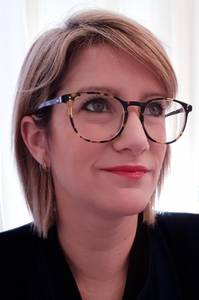
Organisational Development Team, University of Bordeaux
Maud Castells is director of EASI Lab, an innovation lab led by the University of Bordeaux and its 3 partners (Aix-Marseille University, the University of Strasbourg and Sorbonne University) to improve their management processes and modernize their information systems. EASI Lab offers the following support:
- Methodological support for process improvement
- Technical support in the choice of the digital solutions and management of providers
- Change support during the implementation phase (organisational consulting, management support)
- Training and development for staff on the tools and methods used in the change projects (lean 6 sigma, creativity / agility methods)
From late 2012 to 2014, she was part of the operational team which assisted all the merger process monitoring (strategic plan, road mapping, diagnosis, group works, organisation design, staff mobility…) and consultant in the Continuous Improvement Department at the University of Bordeaux until 2019.
Prior to that, she worked as a consultant in change management in a private consulting firm and worked on a variety of transformation projects (merger, managerial and industrial performance, lobbying) on behalf of private clients as well as public.
Maud has a master degree in Political Science and Private Law, and a Black Belt Certification in Lean Six Sigma.
Prof. Antonio Parbonetti
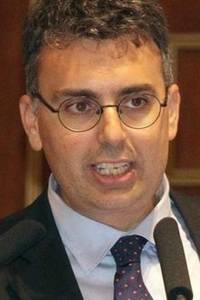
Vice Rector for Organization and Management Processes, University of Padova
Antonio Parbonetti graduated in Economics and Commerce from Pisa in 1997 and at the same University he received his PhD in Business Economics in 2001. During his PhD he was an international visiting scholar at Case Western Reserve University (Cleveland-USA) and Cardiff Business School. He was a Research Fellow at the University of Pisa, after which he became a researcher in Padua in 2003.
He is the author of more than 50 publications (monographs, articles in international and national journals). His main research topics concern: corporate governance; voluntary and mandatory communication; and fair value accounting with particular reference to the banking sector. He is in the editorial board of various prestigious international publications, including Contemporary Accounting Research.
He has held managerial positions at the University of Padua for some time now. Since 2012 he has been president of the Master’s Degree Program in Business Administration, Head of International Relations of the Department of Economics and Business Sciences and a member of the University’s Erasmus Commission. Since 2013 he has been a member of the Council of the School of Economics and Political Science and scientific coordinator of the agreement between the Order of Chartered Accountants and Accounting Experts of Padua and the Department of Economic and Business Sciences. Since 2013 he has been a member of the Board of BMR Genomics (a spin-off of the University of Padua).
Chris Green
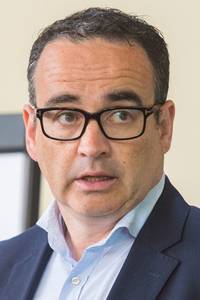
Chief Transformation Officer, University of Glasgow
The statistic that 70% of transformations fail is well rehearsed and often cited. What is less frequently commented on is the importance of taking people with us on the transformation journey. That is crucial if you accept that the goal of transformation is not just to execute a new or revised business model based on a vision for the future. It is much more unpredictable, iterative and experimental. It entails much higher risk.
Higher Education in the UK is entering a challenging period that combines significant uncertainty with big strategic challenges around the future of teaching and research. HE in the UK is comparatively ‘new’ to transformation when compared to other countries or other sectors in the UK. That means there is a lot to learn from and an opportunity to jump a few generations in terms of tools and techniques to enable transformative change. However, the challenges about working with people and investing in them to get them to really understand and buy in to change remains. What I will talk about is our progress to date on this journey at the University of Glasgow.
Chris joined the University of Glasgow in 2018 from PA Consulting Group where he led major transformation programmes across the education, welfare and youth sectors in the public sector. He has over 25 years’ experience of delivering large scale change across the UK and Ireland. His passion is in enabling change with publicly funded bodies delivering critical services that depend on the people who provide the service at key points in our everyday lives.
Since joining the University of Glasgow, Chris has defined a forward-thinking strategic transformation portfolio to help prepare the University for the future in a world that is increasingly dynamic, competitive and global. Working with colleagues across the University we have started to transform our people, structures, processes and systems so they can better respond to and shape this environment.
The key themes we are using to ground that portfolio are: significantly improving the quality of services provided to the University community; improving value for money and efficiency to support greater investment in our strategic imperatives; and enabling a culture focused on service excellence and collaboration.
Sarah MacKenzie

Service Excellence Change Manager, University of Edinburgh
To support the delivery of The University of Edinburgh’s vision, the Service Excellence Programme aims to deliver consistent systems, processes and ways of working across professional services, helping make it easier for students to join and study, and life simpler and better for staff. The programme has been running since 2017, delivering change and improvements for HR and Finance (underpinned by a new Core System) as well as Student Recruitment and Admissions and Student Administration and Support services.
Sarah MacKenzie and Martyn Peggie will take us through some of the change journey so far, focusing on The University of Edinburgh’s approach to leadership and sponsorship in a transformation programme, and the essential roles that leaders play in times of change. Taking a practical approach, they will share some of the lessons learned and how the Service Excellence Programme is committed to engaging with leaders to deliver meaningful change.
Sarah MacKenzie is the lead Change Manager for the Service Excellence Programme at The University of Edinburgh. She manages the Change Team that is integrated both within the Service Excellence Programme and across Colleges, Schools and Departments. Sarah has 20 years’ experience working across higher education, financial and public sectors to deliver business change and continuous improvement. Sarah grew up in Canada and is a graduate of Mount Allison University where she studied Psychology and French. She lives in Edinburgh with her family and her dogs, Dave and Steve.
Martyn Peggie

Core Systems Lead – HR, Service Excellence Programme, University of Edinburgh
Martyn Peggie is the lead for Core Systems (HR) in the Service Excellence Programme at The University of Edinburgh. The Core Systems Programme is responsible for delivering a single integrated HR and Finance system for the University. Prior to holding this role Martyn lead the University of Edinburgh’s HR Transformation Programme which delivered a unified HR structure for the University, established new ways of working and introduce a range of policy and process changes. Martyn has over 20 years of experience working across the private and higher education sectors. Martyn is a graduate of the University of Strathclyde and is an alumnus of the HUMANE Summer School.
He lives in Edinburgh and when he’s not trying to transform the University he enjoys cycling and being bossed around by his five year old daughter.
Laurent Barbieri
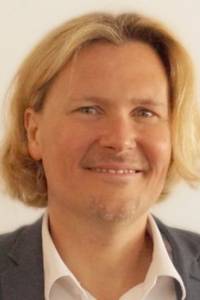
Director General, University of Aix-Marseille, and Secretary of the French universities’ Directors General Association
Vincent Moreau and Laurent Barbieri will give an overview of the changes in the landscape of French universities, after which they will present on EASI Lab as an attempt to provide a collective answer to the transformation challenges the participating members of the Lab are currently facing. They will conclude by presenting how the University of Aix-Marseille and the University of Bordeaux plan to address the issue of change management within the coming years.
Aix-Marseille University was founded in 2012 following a merger process. Seven years after the merger, AMU has embarked upon a major change programme, based on the following guidelines:
- an overhaul and simplification of processes based on Lean Management,
- digitisation,
- the definition of “AMU” working methods,
- the co-production of projects by the University’s directorates,
- professional mobility and exchanges within the framework of the European CIVIS University, and
- the creation of a staff training school.
Laurent Barbieri, is the Director General of Aix-Marseille University. Appointed to this post in October 2018, he is responsible for promoting and managing the evolution of the University to enable its continued development and improvement. He holds a master’s degree in private law from AMU’s Faculty of Law in Aix-en-Provence (1993) and has also studied at the CPAG of Sciences-Po Aix (1995-1996).
Laurent began his career as head of the administrative services of the faculties of medicine and pharmacy at Grenoble-I Joseph-Fourier University (1996-2003). He then joined the University of the Mediterranean Aix-Marseille-II (now merged into AMU) as Director of Financial Affairs (2004-2010). In particular, he is responsible for reorganizing the institution’s financial function and the transition to the NCEs. He is also Sifac-SAP project manager.
From November 2010 to February 2017, Laurent was Director General of Services at the École Centrale de Marseille. In charge of the development and administrative structure of the school, its mission is to redesign the school’s administrative and technical services and prepare it for expanded responsibilities and skills (transfer of the payroll and jobs of civil servants to the school).
In March 2017, he joined the Paul Sabatier University, Toulouse 3, in order to implement a plan to return to financial equilibrium. It proposes and initiates a project to reorganize the University’s support functions in order to strengthen the overall organization and improve the quality of life at work.
Laurent Barbieri is Secretary of the Association of Directors General of Higher Education Institutions (ADGS) in France.
Sonia Dubourg-Lavroff

Inspector General of Education, Sport and Research
Sonia Dubourg-Lavroff was born in Bordeaux where she has done all her studies at school and at the University of Bordeaux. She holds a doctorate in public law (English administrative law) about “the law making regulatory powers of ministers in Great-Britain” and a master degree in political sciences from Sciences-Po Bordeaux.
She is now an Inspector general of education, sports and research, (IGéSR) for the ministries in charge of higher education, education and sports; she is an expert for education at the French national commission for UNESCO.
She has a professional experience in different fields of higher education and research : senior lecturer in law and political sciences at the University of Bordeaux, director of several public bodies (French national agency Erasmus +), director for European and international affairs at the ministries of education and higher education and research.
She has been a deputy-mayor in the Bordeaux municipality for twelve years.
Ian Creagh
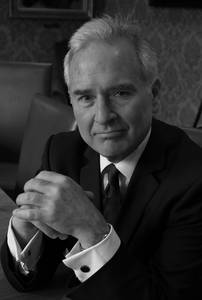
Seminar Facilitator
After serving 10 years as King’s College London’s Senior Vice-president Operations & College Secretary, Ian now holds a portfolio of roles including Strategy Consultant for HUMANE. Prior to King’s, he held similar chief operating officer roles at City University London and before that, the University of Adelaide. The first part of his career was in the Australian Public Service where he rose early on to become a member of the Senior Executive Service. Ian is also an experienced non-executive having served on the Board of King’s Health Partners, the Council of Governors of an NHS Foundation Trust, and the audit committee of the British Academy. He is currently an independent non-executive member of BPP University’s Academic Council.